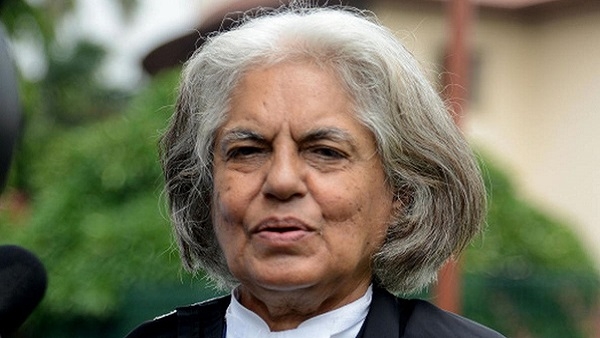Indira Jaising's Communist Agenda? The Debate Over Lowering Age of Consent to 16
Senior Advocate Indira Jaising"s push to lower the age of consent to 16 has ignited a fierce debate. Accused of pursuing a communist agenda, her move faces backlash from the government, which warns of increased trafficking risks. Is this activism or a threat to children"s rights?

Senior Advocate and communist activist Indira Jaising has once again stirred controversy. She has filed a petition in the Supreme Court seeking to reduce the age of consent from 18 to 16 years, arguing that today's adolescents reach puberty earlier and are capable of making informed decisions about their relationships.
However, this step is being viewed as a move that weakens child rights and protection laws, and the government has strongly opposed it. The central government argues that this change would be an open invitation for traffickers and exploiters, who could legitimize sexual exploitation and trafficking under the guise of 'consent.'
Indira Jaising's move is all the more shocking given her past track record. Jaising, who has long been known as a communist and left-wing activist, has previously been involved in several cases where her decisions and actions have gone against the rights of children and women.
In 2019, her NGO 'Lawyers Collective' was accused of misusing foreign funds, leading to the Home Ministry canceling its license. Although the Bombay High Court later ordered the unfreezing of the organization's domestic accounts, the case remains pending in the Supreme Court. This incident raises questions about the transparency and intentions of her actions.
Jaising's previous record also contradicts her current stance. She has fought several controversial cases. For instance, in 2015, she represented Priya Pillai in the Greenpeace India case, fighting against the arrest and house arrest of environmental activists. However, her intentions were questioned in this case as well, as Greenpeace was accused of undermining India's economic policies through foreign funding.
Similarly, in 2016, she challenged the process of nominating Senior Advocates in the Supreme Court, a move that also sparked controversy within the legal community.
In this latest petition, Jaising argues that most cases registered under the Protection of Children from Sexual Offences (POCSO) Act involving 16-18-year-olds are related to consensual relationships. She also claims that the decision to raise the age of consent from 16 to 18 was made under the 2013 Criminal Law (Amendment) Act without any public debate, which was against the recommendations of the Justice Verma Committee.
However, the government counters that this change would put children's safety at risk. According to the National Crime Records Bureau (NCRB), there has been a 180% increase in POCSO cases involving 16-18-year-olds, indicating that these children are already at risk, not that they should be granted the right to 'consent.'
The central government has warned that lowering the age of consent would allow traffickers and exploiters to abuse children under the pretext of 'consent.' The government's argument is that the law's purpose is to provide protection to children, not to rationalize risk. This issue is particularly sensitive because recently, countries like the Philippines have raised the age of consent from 12 to 16, a step towards prioritizing child safety.
Jaising's demand has once again raised the question of whether 'activism' is being carried out at the expense of children's rights. Given her past actions and current stance, it is clear that her agenda may be more political and ideological than focused on child safety. At a time when one child goes missing every eight minutes in the country, such proposals are not only dangerous but also a serious threat to the future of children.
This case is pending in the Supreme Court, and its decision could have a profound impact on child safety and the country's social fabric. But one thing is clear: Indira Jaising's move once again brings to light her communist activism and controversial record, which goes against child rights and protection laws.


